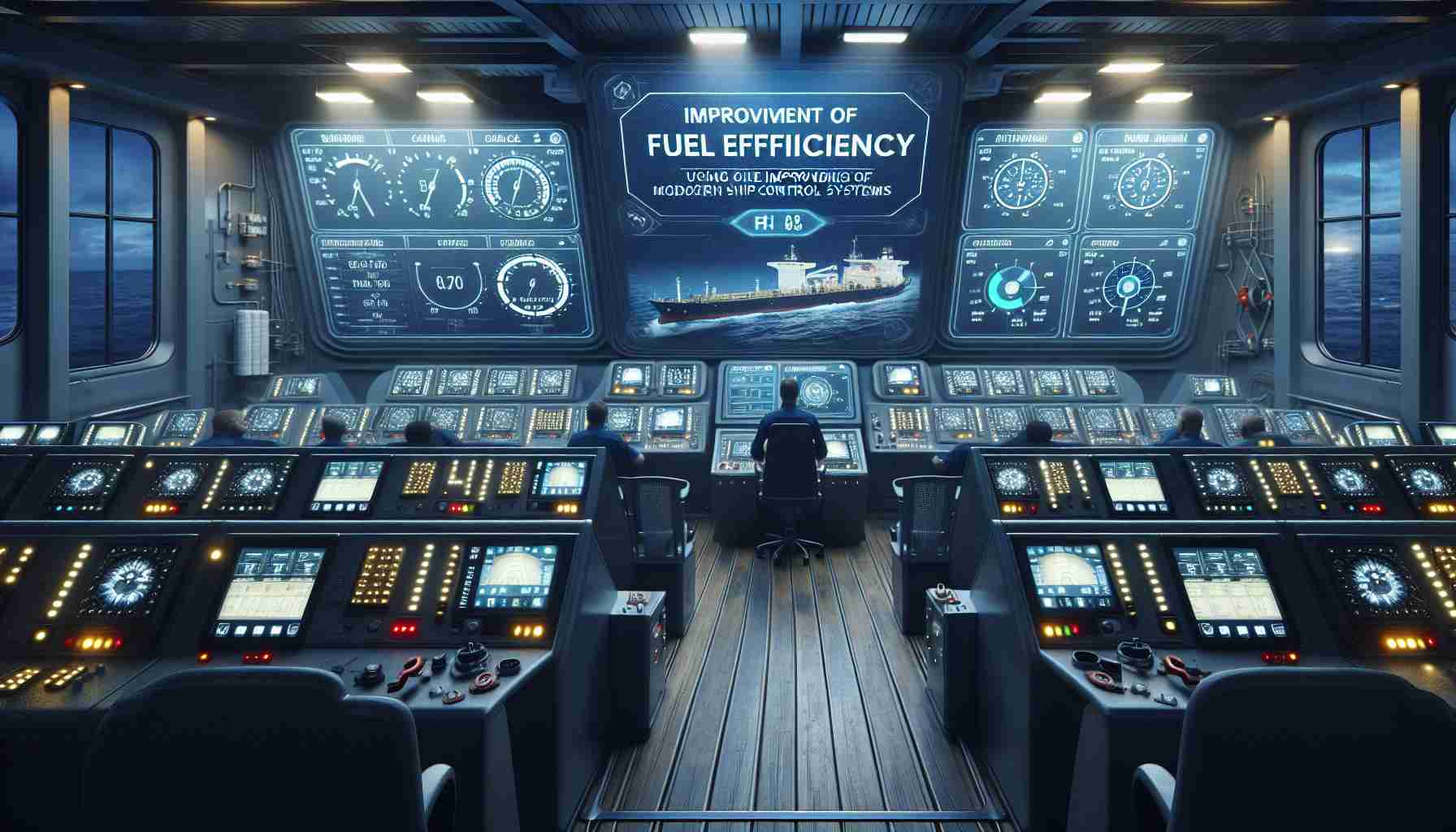Istanbul-based ship management company, Chemfleet, has announced that it achieved around a 10% fuel savings after installing the Berg Propulsion control system on the tank vessel YM Miranda.
The Swedish propulsion company stated that the replacement of the existing control system from another supplier with the Berg MPC800 system on YM Miranda was completed within three days.
Following tests on the IMO II chemical tanker with a capacity of 12,933 dwt, Chemfleet decided to upgrade three additional sister tankers with a capacity of 6,970 dwt by equipping them with the Berg MPC800M control system. This solution also includes Berg’s Dynamic Drive software. Additionally, Chemfleet is also analyzing the control system needs for six more tankers under its management.
Once updated to incorporate Dynamic Drive, the MPC800M Berg Propulsion control system allows for the setting of ship speed or fuel consumption limits, optimizing the pitch and revolutions of the controllable pitch propeller. If the ship’s speed exceeds the set limit, Dynamic Drive automatically reduces thrust until the limit is reached. If fuel efficiency is a priority, the algorithm adjusts the pitch/revolutions settings to optimize engine performance, according to the Swedish company.
“Experiments have shown that the MPC 800 control system achieves about a 10% reduction in fuel consumption, and our expectations are that this system will save even more as it is fully deployed in operations,” said Ersen Uçakhan, Technical Manager at Chemfleet.
“Next year, we also plan to upgrade the YM Neptune, YM Pluto, and YM Uranus vessels, continuing our successful collaboration with Berg Propulsion under this exciting project.”
Özgür Bartınlı, Service Manager at Berg Propulsion, explained that the system offers an open architecture that allows for software updates as needed.
“Chemfleet is a high-quality chemical tanker manager that takes active steps to improve vessel performance—going beyond CII and EEXI requirements, for example,” he said.
“Adding Dynamic Drive not only provides a significant competitive advantage but also offers the ability to anticipate future emission requirements much earlier than required by regulation,” he added.
Emre Özkul, Product Support Manager at Berg Propulsion, added that after the initial modernization of the MPC800M control system on YM Miranda, the company confirmed that the upgrade helps vessels reduce fuel consumption on a daily basis.
“In the coming months, we are eagerly planning to bring greater savings to three more vessels by introducing additional Dynamic Drive software to our planned upgrade solution,” he explained.
Working with shipowners and operators, Berg utilizes 3D scanning and modeling tools to develop modernization options that offer cost-based benefits while considering dockyard work.
Berg Propulsion claims that its solutions minimize mechanical and hydrodynamic losses by combining the best equipment for specific applications to increase energy efficiency without compromising vessel reliability.
“The analysis includes a thorough assessment of product performance, including propellers, gearboxes, shaft generators, and engines,” Özkul explained.
“There is no one-size-fits-all solution, so we carefully analyze the efficiency, configuration, and performance of the current system to identify key areas of improvement and formulate further steps. Berg Propulsion works closely with shipowners to meet their energy efficiency needs—whether it’s by complying with EEXI and CII requirements, focusing on energy efficiency, or taking action to reduce carbon dioxide emissions.”
FAQ Section based on the main topics and information presented in the article:
1. Which company manages the YM Miranda vessels and achieved fuel savings?
Chemfleet, an Istanbul-based ship manager, achieved around a 10% fuel savings after installing the Berg Propulsion control system on the tank vessel YM Miranda.
2. What were the test results on YM Miranda?
After testing on board the tank vessel YM Miranda, Chemfleet decided to upgrade three additional sister tankers by equipping them with the Berg MPC800M control system. It is also analyzing the control system needs for six more tankers.
3. How does the updated MPC800M Berg Propulsion control system work?
Once updated to incorporate Dynamic Drive, the MPC800M Berg Propulsion control system allows for the setting of ship speed or fuel consumption limits, optimizing the pitch and revolutions of the controllable pitch propeller. If the ship’s speed exceeds the limit, Dynamic Drive automatically reduces thrust until the limit is reached. If fuel efficiency is a priority, the algorithm adjusts the pitch/revolutions settings to optimize engine performance.
4. What are Chemfleet’s expectations for the MPC800M system?
Chemfleet expects the updated MPC800M control system to save even more fuel as it is fully deployed in operations.
5. Which other tankers does Chemfleet plan to upgrade?
Chemfleet also plans to upgrade the YM Neptune, YM Pluto, and YM Uranus tankers next year.
6. What does the MPC800M Berg Propulsion control system offer?
The system offers an open architecture that allows for software updates as needed.
7. What benefits does the addition of Dynamic Drive bring?
Adding Dynamic Drive not only provides a significant competitive advantage but also allows for anticipating future emission requirements.
8. How does Berg Propulsion collaborate with shipowners and operators?
Berg Propulsion uses 3D scanning and modeling tools to develop modernization options that offer cost-based benefits while considering dockyard work.
9. What improvement areas are analyzed by Berg Propulsion?
Berg Propulsion conducts a thorough analysis of the efficiency, configuration, and performance of the current system to identify key areas of improvement and formulate further steps.
10. What is Berg Propulsion’s main premise?
Berg Propulsion claims that their solutions minimize mechanical and hydrodynamic losses by combining the best equipment for specific applications to increase energy efficiency without compromising vessel reliability.
Suggested related links:
– Chemfleet
– Berg Propulsion
– International Maritime Organization (IMO)
The source of the article is from the blog cheap-sound.com
